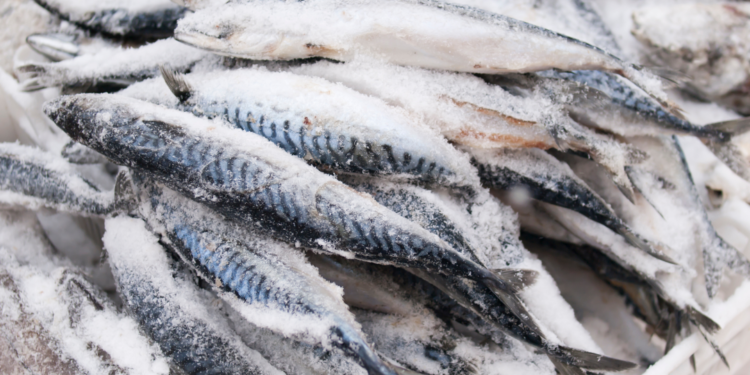Bulk Fish Importers Association Ghana laments unsustainable business environment as Fish Levy increases by 1,573%
The Association, which imports over 80% of the country’s total imported frozen fish, has reported several challenges faced by its members in the business. Fish consumption constitutes more than 60% of Ghana’s protein intake, with a per capita consumption of about 25 to 30kg, making it an essential commodity in the country. However, the country has a fish production deficit of over 60%, which has been largely augmented by fish imported into the system by the Association’s members.
- Advertisement -
The Bulk Fish Importers Association of Ghana has raised concerns over the daunting challenges faced by importers of fish into the country, which has the potential to impact the fish importation/production industry in the country.
The Association, which is a member arm of the Importers and Exporters Association of Ghana, has brought to the attention of the government and the general public, the challenges that could lead to a possible fish shortage in the country if not addressed urgently.
The Association, which imports over 80% of the country’s total imported frozen fish, has reported several challenges faced by its members in the business. Fish consumption constitutes more than 60% of Ghana’s protein intake, with a per capita consumption of about 25 to 30kg, making it an essential commodity in the country. However, the country has a fish production deficit of over 60%, which has been largely augmented by fish imported into the system by the Association’s members.
In a statement issued by the Association, one of the significant challenges highlighted by the Association is the astronomical increment of the Fish Import Levy from GHC15.00 to US$17.25 (GHC 251) per metric ton since January 2023.
This is a whooping 1,573% increment in levy which has become a cause for concern for fish importers. Per the statement, the Association notes that, its members, and industry players were not engaged during the increment process, which raises questions about the government’s consultative approach towards the private sector.
Another worrying factor the Association notes, is the sudden change of the fish levy from cedi to dollars, which has not been clearly communicated to the stakeholders. The recent removal of the 30% benchmark value has also affected the fish import business, while the recent 2.5% VAT increment has become an albatross on the operations of the Association’s members.
The introduction of the recently approved 3 tax bills by parliament, which has since received Presidential accent, the Association further noted, could have an adverse effect on the already struggling sector, and the government must reverse them.
The customs duty on imports in Ghana is currently pegged at 39.64% on CIF, plus 17.25 dollars per ton. This duty figure as compared to neighboring countries like Ivory Coast, which pays 12.5% customs duty on CIF, makes doing business in Ghana less attractive, leading to a dip in traffic flow at Ghana’s ports.
Aside from vessels preferring to discharge at Togo and Ivory Coast due to the high cost of doing business at Ghana’s ports, there has been an explosion in fish smuggling from neighboring countries, especially Cote D’Ivoire and Burkina Faso, into Ghana, which negatively impacts the Association’s members.
The Association has also reported the constant harassment by the Ghana Revenue Authority (GRA) and its staff, all in the name of revenue mobilization, whereas the GRA has not created an enabling environment to boost their businesses. This lack of support from the GRA could have a severe impact on the business operations of the Association’s members.
The Association imports over 80% of the country’s total imported frozen fish and contributes significantly to revenue collection at the ports, therefore, it is crucial for the government to engage with the Association and its members when reviewing taxes, levies, VAT, and others to ensure the continuity of the fish industry in Ghana. The potential price hikes in fish products across the country due to passing the incurred cost onto consumers could negatively impact the ordinary Ghanaian, making it necessary for the government to put measures in place to address the situation.
Source: norvanreports.com
- Advertisement -


